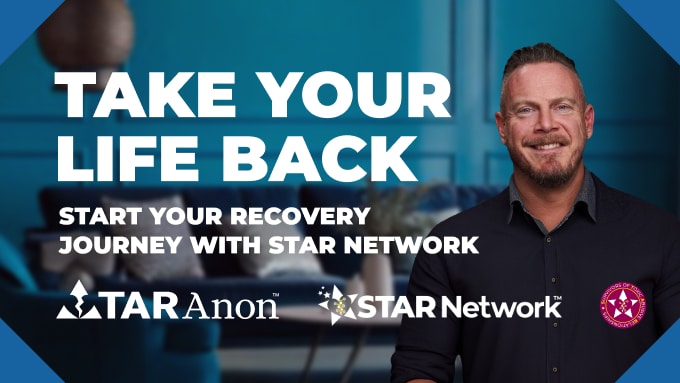CPTSD Foundation
Daily Support Between Therapy Appointments

Volunteer
Are you looking for ways to make a difference in the mental health community by helping others, and sharing your wisdom, experience, or a skillset you have?
Call for Writers
What mental health topics and healing modalities are you passionate about? Our blog reaches thousands of complex trauma survivors. If you enjoy writing, we want to hear from you.
Donate
Make a donation of any size right now, or make an even bigger impact by setting up a monthly recurring gift! Your generosity changes lives.
What is CPTSD?
Complex Post-Traumatic Stress Disorder (CPTSD, C-PTSD, Complex PTSD) describes the results of ongoing, inescapable, relational trauma. Unlike Post-Traumatic Stress Disorder (PTSD), Complex PTSD typically involves being hurt by another person. These hurts are ongoing, repeated, and often involving a betrayal and loss of safety.
Featured Programs.
Check out these featured trauma-informed resources or click the button to view all of our available programs.
Trauma-Informed peer support in a validating and supportive group atmosphere, to supplement individual healing work.
A weekly body-centered healing program focused on helping survivors engage with the present moment.
Join our virtual group and work on your favorite creative modality together with your leader and other survivors.
To further support trauma survivors, CPTSD Foundation is proud to partner with STAR Network™, a 501(c)(3) nonprofit foundation committed to Support, Treatment, and Prevention of Narcissistic Abuse and Attachment Disorders.
Narcissistic abuse is one of the most devastating triggers for CPTSD, robbing survivors of their authenticity. STAR Network empowers STARs (Survivors of Toxic Abusive Relationships) with free and accessible meetings through its transformational program, TAR AnonⓇ.
Latest from our Blog
Weekly articles and survivor stories by guest writers, clinicians, and CPTSD Foundation staff.
Born Tired: Why Trauma Survivors Often Find Comfort in Antinatalist Logic
Antinatalism isn’t born of apathy. It’s born of empathy that has run out of oxygen. In trauma-dense lives and professions, the nervous system learns to equate vigilance with virtue. When every attempt to stop harm fails, the mind begins to see prevention itself as morality—even if that prevention means non-creation. This is a forensic, trauma-informed examination of how antinatalist logic grows not from apathy but from empathy stretched past human capacity.
Mirror, Mirror — Who is that Person Staring at Me?
Hey, how are you feeling today? Have you taken some time for yourself today? If you are a trauma survivor, the answer is probably not. As survivors, the last person we think about is ourselves because we have spent years being suppressed into believing that we don’t...
Not Another Year of Pushing
As we step into a new year, I’ve been reflecting a lot on what it truly means to heal--not just from trauma, but from the related patterns of pushing, proving, and overriding ourselves in the name of productivity, success, or even “purpose.”Recently, I reconnected...
Finding Freedom in My Individuality and Overcoming the Fear of Not Being Liked
I still remember the name of their exclusive club: CHABELCK. In seventh grade, the children at my middle school traded their Nintendos and Polly Pocket dolls for iPhones and Barbie dolls--in the form of minions for their social cliques. Soon after the school year...
Scrubbed Innocence: Resurrecting My Words and Worth
Trigger Warning: Detailed Description of Child Abuse I wrote this poem a few months ago, drawing from the well of ancient, long-buried feelings about the first time my mom forced my mouth open and poured Dawn dish soap into it. I was four. Although I had received...
Why Being an Ally to the LGBTQ+ Community Matters — Especially in Mental Health
At our therapy practice, we believe that everyone deserves to feel seen, safe, and supported—exactly as they are. As therapists, we have the honor of walking alongside people in their most vulnerable moments. For LGBTQ+ individuals, that vulnerability is often...
What Community Members Are Saying.
How our programs are changing the lives of complex trauma survivors aorund the world.
Daily Recovery Support
Member
“My FRAMILY is amazing. You all are amazing and inspiring. I truly love all everyone on the calls and thank you from the bottom of my heart for helping me heal through this community.”
Healing Book Club
Member
”It is very meaningful and I feel that I have established true, authentic connections. It’s comforting to have a designated space each week that’s safe, normalizing, educational, and secure. Thank you for this incredible resource!”
Daily Recovery Support
Member
“The daily calls are helping me to take better care of myself and have boundaries. How to recognize safe people and unsafe people and receive encouragement and support that I do not get otherwise. They help me recognize I am not alone in my feelings and thoughts.”
Trauma-Friendly Meditation
Member
I have experienced significant positive effects in my life since starting this class which have impacted my life (in a medium to large way). I have found that the acceptance component taught within this style of meditation has been extremely valuable.
Additional Resources.
Check out these accessible and no-cost resources to aid in your healing journey.
Trauma-Informed Tuesday Newsletter
Direct to your inbox every week
Trauma-Friendly Meditation Classes
Monthly Live Classes or Self-Paced Course
Work with a Coach
Free discovery session to see if working with a trauma-informed coach is a good choice
About CPTSD Foundation.
Our Mission: To leave a legacy of healing for future generations by providing daily support between therapy appointments











